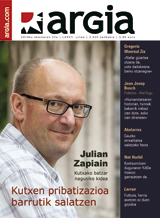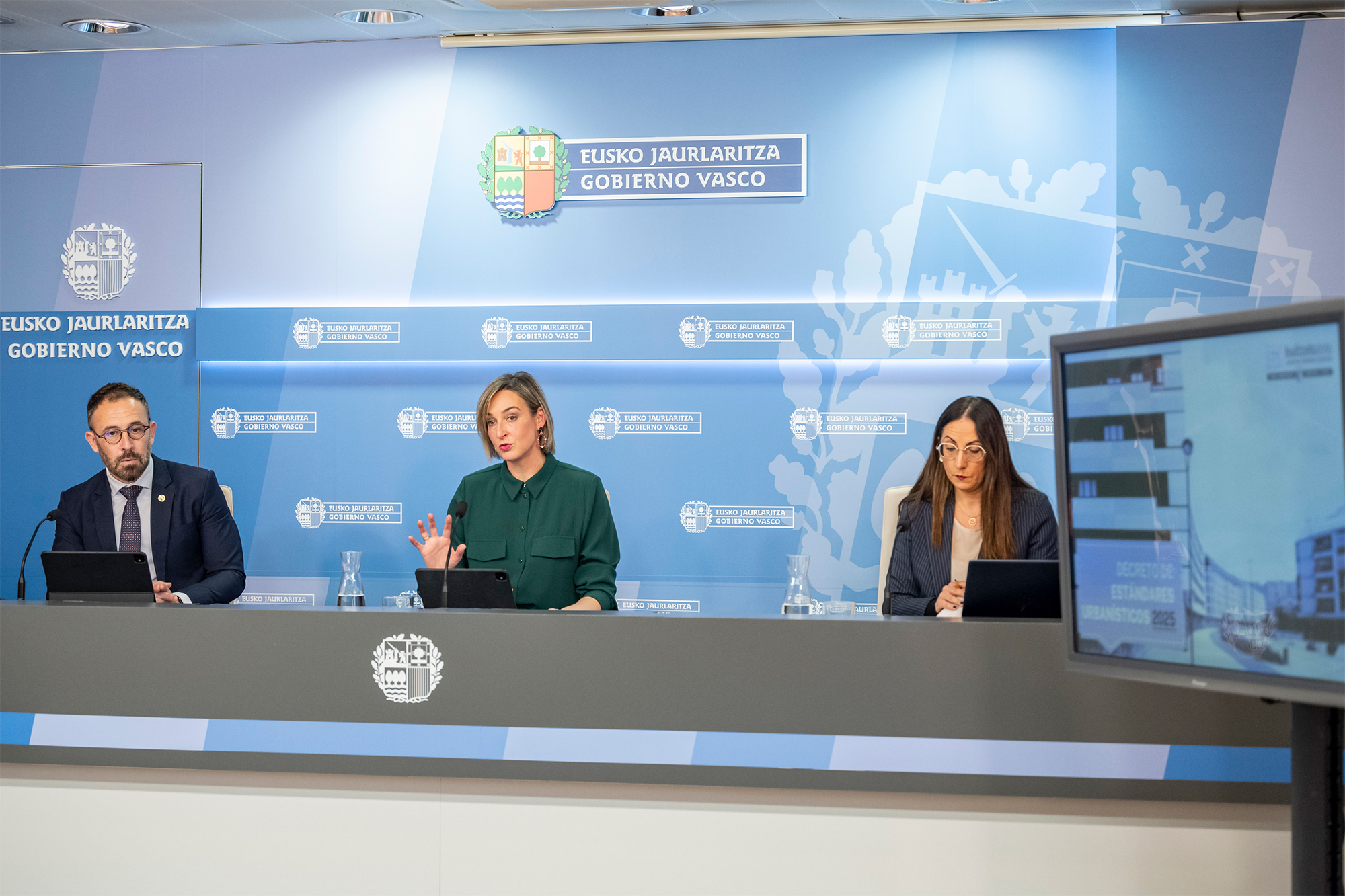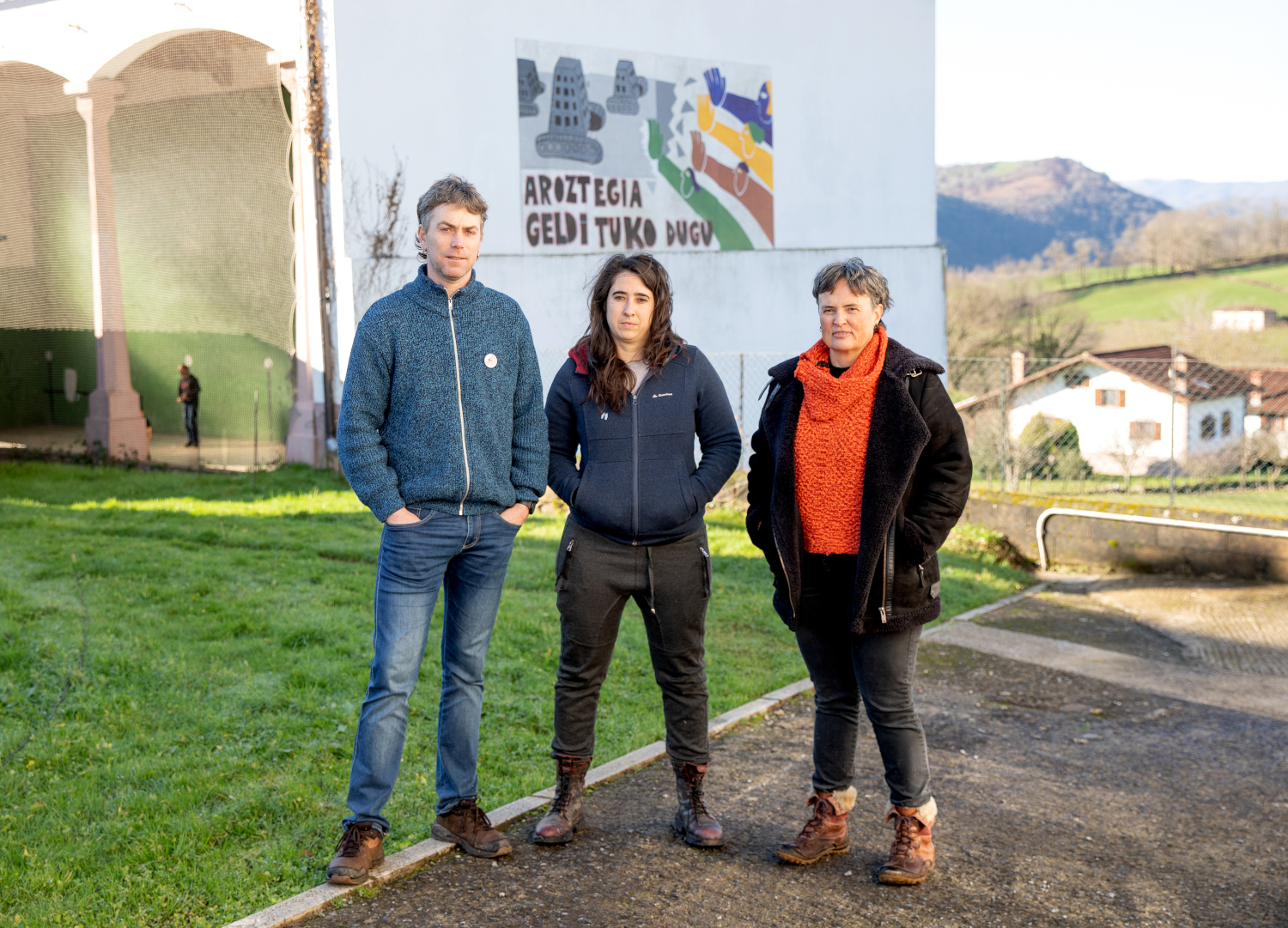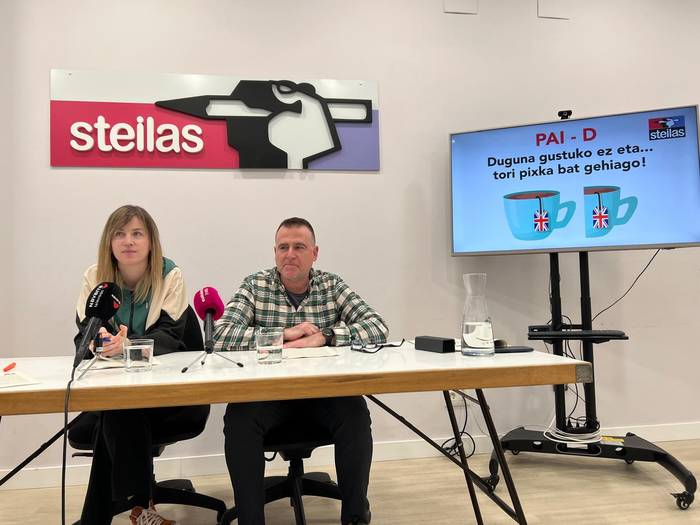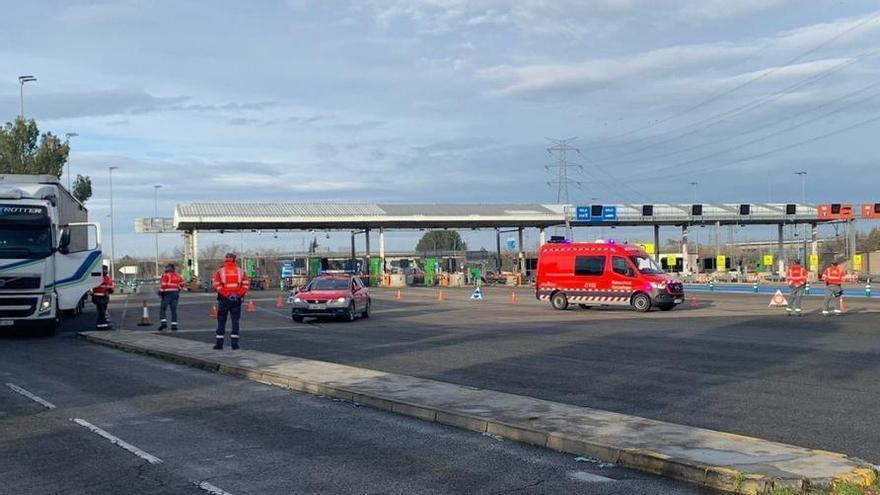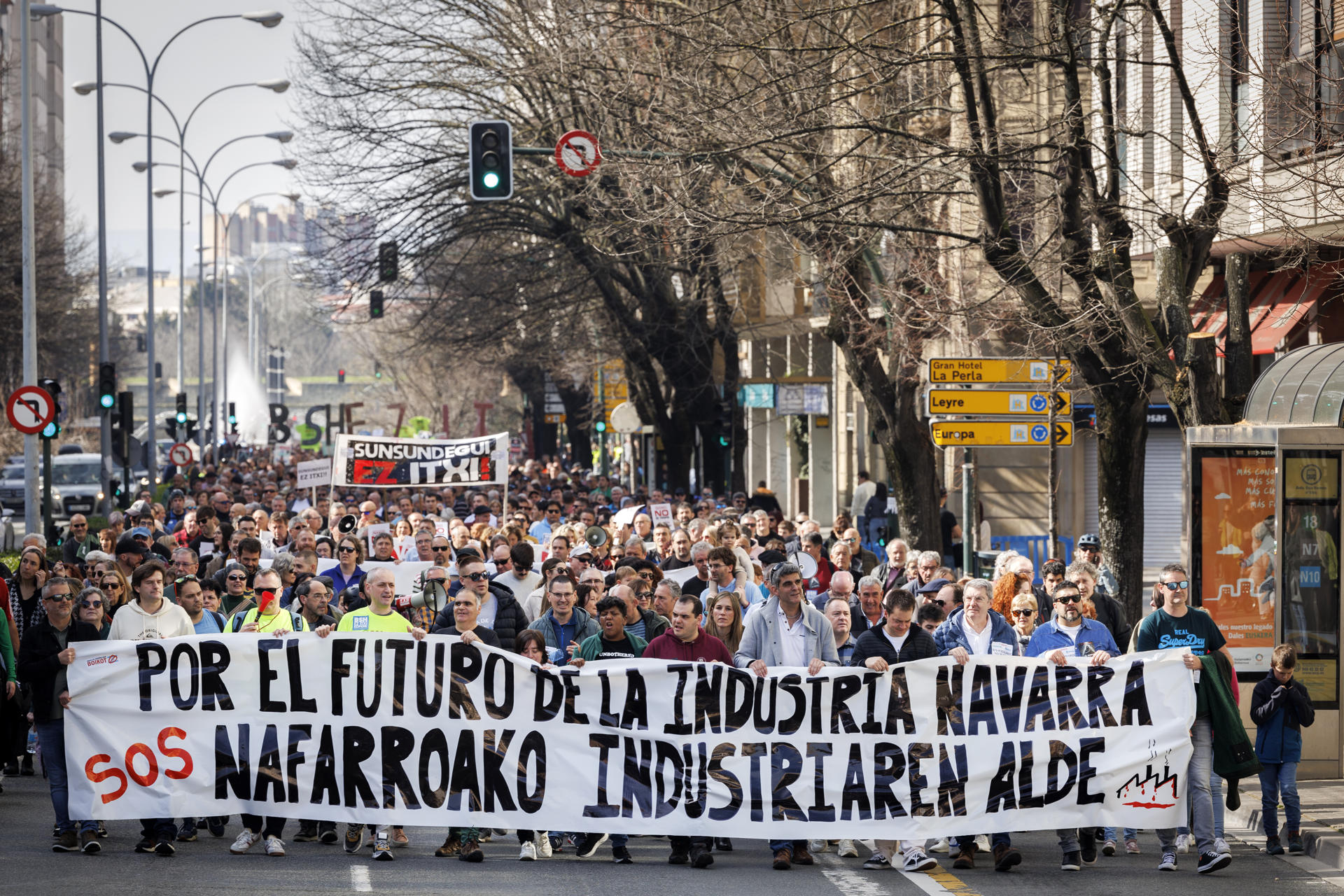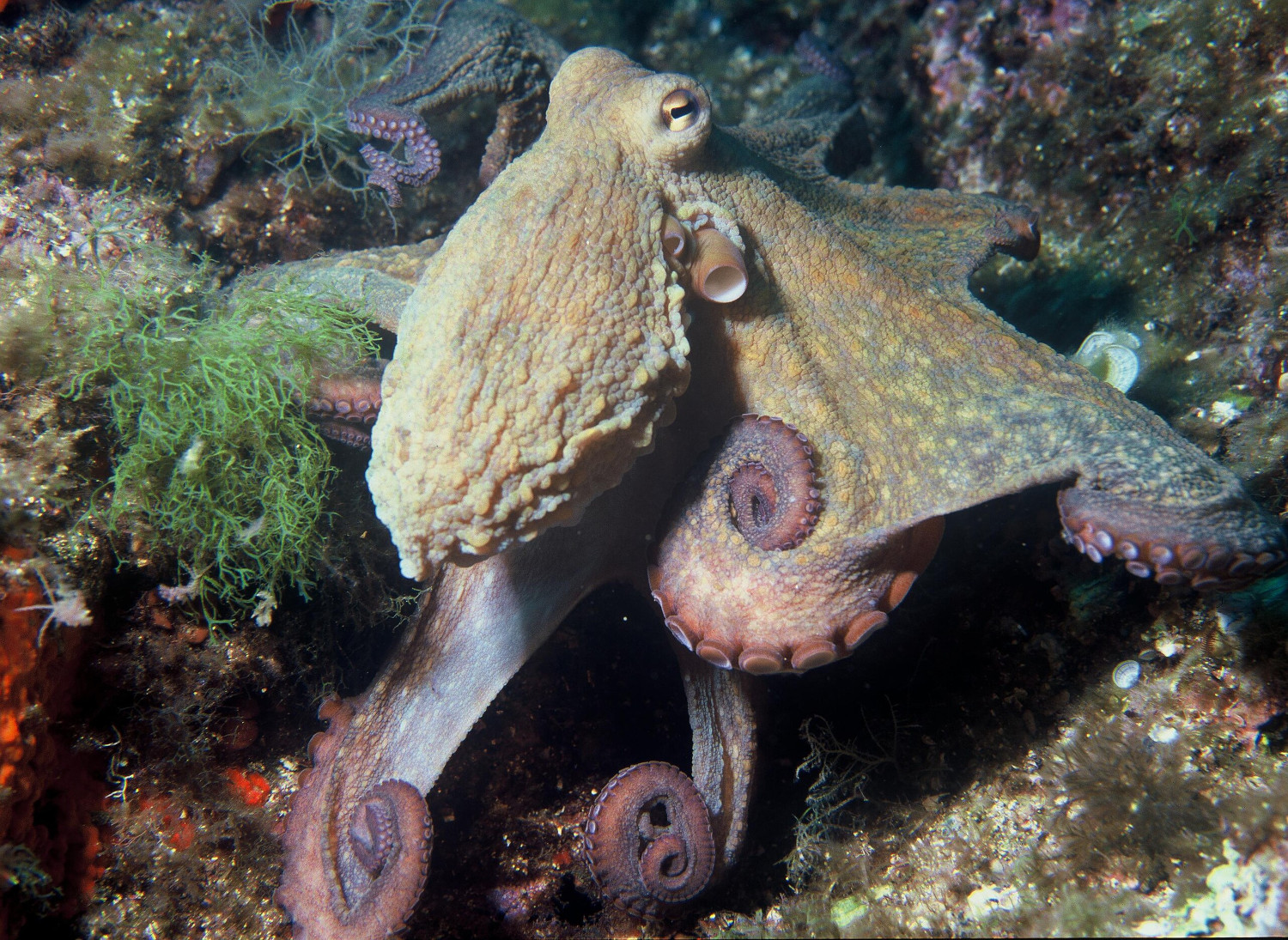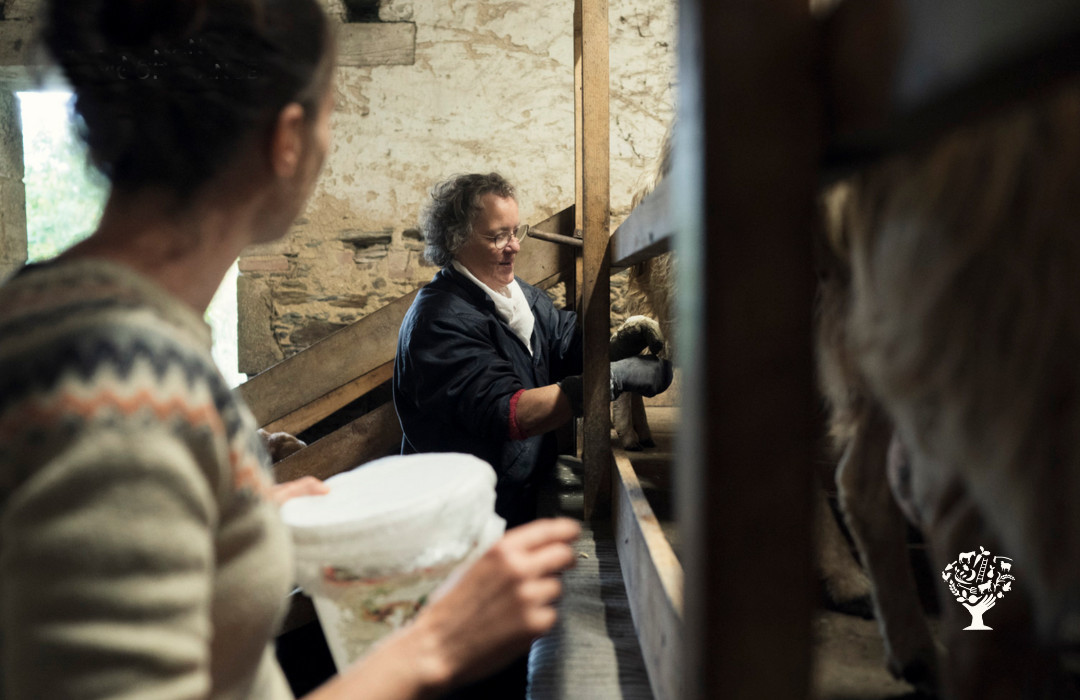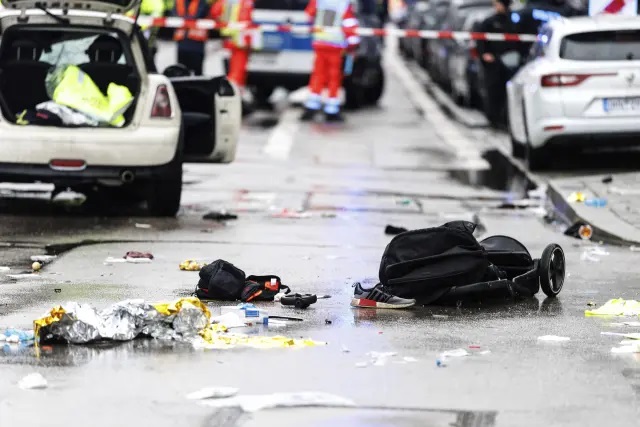Cooperation between the CAV and Navarra is essential in the defence of the Convention
- The university professor and researcher specialized in History of Law has recently been awarded the Euskadi Research Award 2013. It tells us about the current economic conventions, the importance of them and the attacks they suffer, which are the heritage of the historic rights of the Basques, rather than of dialogue in the particular class.
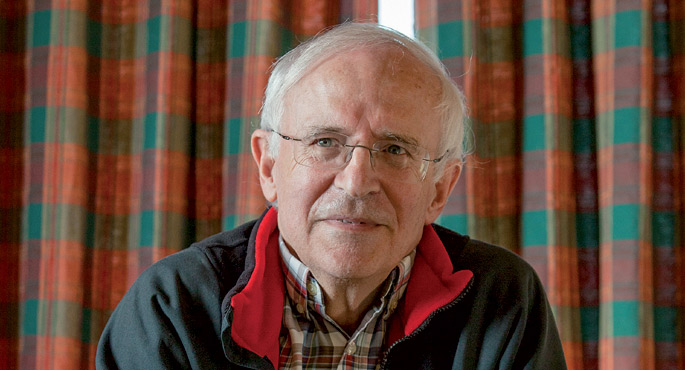
How did nationalist awareness emerge?
At age 6, a brother told me he was Basque. He would be 13 or 14, and he was Abertzale. In that post-war Navarra nationalism was not only hidden, but hidden underground in 20 meters. This kind of awareness awakening was beneficial to me, because it gave me a critical attitude towards all issues. As a student at the University of Deusto in 1961 or 62, almost all of them were supporters of Franco. At that time I moved in the most secret part and that does lead you to understand the people and history in a different way. This is very interesting for a historian, as you have a permanent suspicion of the official versions.
You made the thesis about the Old Fuero of Bizkaia. Why?
Andres de Mañerikua, a great expert in the history of Bizkaia, was a professor at Deusto. I was a very trained, very critical person, and it had a huge influence on me. The Fuero de Bizkaia is impressive. From Navarre and, above all, with this pan-nabarrist stream, it seems that the Biscayan do not realize that they are also Navarros. But that's not the case. It was a very agile political institution before the 12th century. It was the most advanced legislation in Europe and Rousseau, the enlightened -- they recognized it was amazing. He was also facing the French Revolution in terms of rights and freedoms.
Why was that so?
Because as a people the Biscayan people had a very developed concept of freedom and because the set of rights they had been exercising for a long time is very rich. For example, married women had the power to manage property and power over their children, in many cases as great as their husband's. It was an exemplary forum. That is why Bizkaia has had the power and hence the importance of the Gernika Tree as a symbol of freedoms.
Has there ever been a legal entity of its own in the Pyrenees?
As for the language, Joan Corominas said that there was a very broad Basque toponymic base. What happens in the legal sphere is similar: the patrimonial organization of the family is very similar from Bizkaia to Catalonia. For example, the possibility of giving to a child all to ensure the freedom or the length of the house in which the will is made. This is one of the main features of Pyrenean law. Another is the importance of neighborhood goods. In Navarra, above the Region of Pamplona, the majority are lands of public domain, so agreements are established between both areas for their use.
Has it been maintained?
Civil codes have been established in Aragon, Catalonia and Navarre. From the point of view of public law, we must emphasise that we have our own finances because we have historic rights. This in Spain has not been very well seen. They consider it outdated, but it should be borne in mind that today the most modern countries are Anglo-Saxon, where many rights are preserved since the Middle Ages without complexes.
After working at universities in Valladolid, Extremadura and Madrid, you returned home and actively participated in the creation of the UPV. From 1981 to 85 he was rector.
This town had no university of its own, and I thought the best way to do that was to go outside and see other universities. The effort for the university came from far away. It was clear that without a good university we would have great difficulties in living and staying as a people.
What does the university bring to a people?
A lot of things. The first is that students can learn and the second is that they can be given a high-level cultural treatment: history, literature, geography, economy… In short, we can do our own science. That is the key and this was fundamental in our case. After the loss of the excerpts in 1841 and 1876, without this protection mechanism, without self-government, the language went to the forefront, as well as the need to create a university of its own.
Is he an intellectual agent?
It's very much linked to the university which doctors, entrepreneurs, teachers we train for the future. It is very difficult to make a good policy, for example, if politicians do not have proper training and a vision of the country that is not receptive. It is a necessary but not sufficient condition, because we now have a university of our own and yet most politicians have a very narrow view of our country.
How do you see the UPV/EHU today after three decades?
We were born in very difficult times. The UPV/EHU has had a very positive development. This is not what we would like, clearly, but steps have been taken. On the other hand, Mondragon Unibertsitatea was created, very interesting, closely linked to reality and territory, and there is also Deusto, very classical, which gives an adequate response to the business environment. It is undoubtedly one of the keys to our economic success.
Did you need a public university in Navarra?
The University of Navarra is an institution that has no roots in it and many of the professors who work in strategic areas are also foreigners, have other values. Two or three generations of Navarros have been formed with these values and this influences today’s society. Despite the fact that society has gained a high degree of adherence, it is clear that the UPNA has never been a much wanted university by the main public authorities. That is why it does not give the institutions any pain to cut their budgets.
What do you think about cuts in education and research?
The damage is going to be felt in the next two or three decades. For scientific production, if there is no money for projects, the structure is weakened. The door to research and teaching is closed for many high-value young people. There will be professionals for different companies, administrations or professions, but the whole of researchers and professors is shrinking and this has a direct impact on society as a whole.
What output can it have?
Thanks to the economic agreement, we have a foral treasury of our own, which is extremely autonomous. We are almost a confederation of economic resources with the state. Another thing is what we do with our money. We waste resources on all those projects that we all have in our heads and not on research or education, for example ... People should be responsible and ask clearly for the resources we have to be spent.
In the State, many believe that these economic conventions are a privilege.
Yes, but this is not something that has fallen from the sky. The struggle was very hard in the 19th century and they are the most important institutions we have today. From now on, yes, maintaining the conventions will cost more. So far the money from Europe has arrived, but today it must also be sent to the countries of Eastern Europe, so that is over. In the CAV and in Navarre the money market is very interesting and they are going to ask for an increase in the quota, to the point of jeopardizing even the maintenance of our system. This will be the great battle for the coming years, the safest.
Go and negotiate with the CAV and Navarra hand in hand, the best?
The CAV and Navarra conventions are very similar from an institutional point of view. For Navarre, the guarantee is that the CAV has an agreement and knows that it will defend it well, because those achievements then apply to Navarre. And vice versa: if you negotiate here before and from below, Madrid wants to apply the same thing to the CAPV. But, for ideological reasons of those who rule in Navarre, the political relationship with the CAV is null and void, to the detriment of Navarre society. Cooperation between the two communities would be essential in the defence of the convention. In the CAPV there are elites who are very well prepared to defend the convention and, in general, there is more interest than in Navarre. In Navarre we are about to renew the agreement and it seems that the impression is that the preparation is very poor, that everything is very green. Power is more willing to negotiate here from below and that is always the great danger of Navarre. In 1841 it was negotiated far below, although the real conditions allowed for the retention of more competencies for self-government. And now the same thing can happen. I do not know if we are becoming aware of the importance of this issue, but we are putting our future in serious difficulties.
Have you ruled here many times against the people and against parliament?
Since the 19th century, the interest of citizens in maintaining the kingdom has been noted, but the higher classes have not.
Why? Why didn't they want to be a kingdom?
For three reasons: Because the great owners of the Ribera harvest wanted to expand the labour market in the state. They wanted to overcome the customs that existed in the Ebro and to do so it was an obstacle to be a kingdom. On the other hand, in 1836 Madrid carried out the deamortization of the properties of the Church. Take the land away from many convents and sell it to those who paid the most. The then billionaires bought the land in a reckless manner and feared that this depreciation would be considered a counter-strong and would therefore return the land. Therefore, the best thing for them was to say goodbye to the kingdom. And there was a third issue that affected that upper class: public debt. In Navarre, the road network was carried out through loans, with the money left by the rich. Navarre was completely impoverished by the Carlist war and the war against the French. In this situation, they thought that by ceasing to be a kingdom, Madrid would take over public debt.
The final agreement on the status of a kingdom was signed under the control of representatives of this high level. Since then, these kinds of rulers have always to agree with Madrid to defend themselves against the people. The San Cristobal fort, for example, was not built to protect itself from France, but to control the population, which did not trust the population. But Navarre society is mansa, more mansa than you can imagine. Our hymn is a tiny, that kind of dance that makes your head tilt. In Navarra anything can be done from power. This pact with Madrid is once and for all effective. Lately, in March, we saw it clear: the government pact that the Navarros want cannot be implemented, if Madrid does not want. That is why I think it is so dangerous now to negotiate the convention. In the hands of who he is? To the technicians who have always acted with rigor and correctness? No. To a commission designated by UPN.
Therefore, is political change still a dream?
If a majority came out that would not need the permission of Madrid… but it is very difficult. Ours is a very diverse society. It takes a great deal of respect and understanding here to understand each other, if we do not always depend on a certain majority. But the problem is, we're not educated for diversity, we're educated for aggression. To this must be added another factor: In the 1980s, a brutal crisis occurred in the CAV.
But the context has changed in recent years...
Yes. Now, CAV is no longer an avoidable place, but a model place as to how it is emerging from the crisis. It is now a point of progress and in that respect that is good now and in the long term.
And is the progress of the Basque Country also positive?
The evolution of the language in Navarre is extremely positive and the change in the sociopolitical context is very positive for the language. The Basque Country has been linked to pessimism for a long time. Now, on the other hand, it is increasingly linked to the positive. n
Gregorio Monreal Zia (Etaiu, Nafarroa, 1942ko martxoaren 11). Zuzenbidea eta Ekonomia ikasi zuen Deustun eta Madrilen. EHUko lehen errektorea izan zen. 1994tik NUPeko Zuzenbide Historian katedraduna. Egun irakasle emeritua da eta ikerkuntzan dihardu buru-belarri. 1992tik 1996ra Eusko Ikaskuntzaren lehendakaria izan zen. Politikan aritu zen senatari moduan Madrilen, Frente Autonómico-an Gipuzkoatik 1977ko hauteskundeez geroztik. 1979an Gernikako Estatutua idazten ere parte hartu zuen. Lotura estua du Renoko unibertsitatearekin (Nevada, AEB) eta bertako Wiliam A. Douglass irakaslearekin.
Monrealek berak hautatu zuen goiburu hau EHUko ikur gisa, Iparragirrek XIX. mendean Foruen ereserkian idatzitako hitz hauekin “bizkaitarrek mendez mende garatu eta defenditutako askatasun politikoen eta zibikoen hazia munduan zehar barreiatzea” proposatzen delako.
“Abertzaleok akats ikaragarriak egin ditugu. Bortizkeriaren erabilpena pozoia bezalakoa izan da abertzaletasunarentzat nafar gizartean. Bizi eta hil gaitezke benetako errealitatearekin zerikusi gutxi duten asmakizunetan sinesten. Nafarroa Euskadi dela esatea soilik populazioaren %30ak hori pentsatzen duenean eta hori hala balitz bezala jokatu nahi izatea ez da zuzena. Hemen oraindik lokarri asko lotu behar da, kultura politikoa aldatu. Urte oso gogorrak izan dira eta argi dago elkar ulertzea beste modu batez egin behar dela, gure artean lehenbizi eta EAErekin gero, interes komunak aunitz direlako”.
“UPNren PPrekiko joera hori, presidenteak Madrilgo Gobernuari dion amodio sakona eta burua makurtzeko joera hori oso arriskutsua izan daitezke hitzarmen ekonomikoa negoziatzeko unean”.
An ad jumps on my mobile in a long time. He promises to color my world. They say that with this app I will be able to buy like the millionaires. Cheap products, very cheap, even free. They have played on the marketing target that the sociological historical moment demands. This... [+]
Azken boladan gero eta gehiago entzuten dugu gazte askok etxebizitza erosteko ahalmenik ez dugula. Batzuetan, badirudi ez dagoela beste gairik; egia da gai serioa dela. Niri neuri ere, 31 gertu izan arren, oraindik pixka bat falta zait neurea izango den etxebizitza lortzeko... [+]
Ilbeltzeko igande goiz batez jo dugu Baztanera. Eguzkiak oraindik ez du Lekarozko plaza argitu; bertan elkartu gara Garbiñe Elizegi Narbarte, Itziar Torres Letona eta Ernesto Prat Urzainkirekin. Itzaletan hotz egiten du eta umorez goxatu dugu lehen agurra, hogei urtean... [+]
In mid-January, the Cedarras Forum presented the report Euskadi and the European Union, the shared destiny of prosperity and competitiveness. It contains recommendations for the PPAs, taking as a reference the reports submitted by Draghi and Letta for the European Union.
Based... [+]









